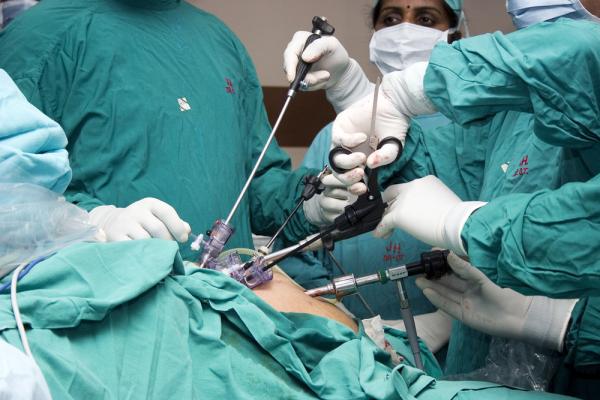The decision to undergo gastric band surgery is a difficult one in itself to make. But findings from a new study have now made that decision even tougher, because an additional surgery – or two, or three, or more – may also be necessary.
Nearly 1 in 5 morbidly obese patients who underwent the weight-reduction surgery were forced to have another operation to correct problems related to the initial surgery, states the authors of a paper published today in the journal JAMA Surgery. Among the malfunctions are incidents when the band that wraps around the stomach slips, or the band erodes into the stomach itself.
The study involved more than 25,000 Medicare beneficiaries who opted for a gastric band operation between 2006 and 2013. Researchers discovered that 4,636 patients (or 18.5%) underwent reoperations "which included device removal, device replacement, or revision to a different bariatric procedure (e.g., a gastric bypass or sleeve gastrectomy)," according to a release announcing the findings. In all the patients had more than 17,500 reoperations, which averaged to 3.8 added procedures per patient.
 Reoperations can include instances when patients do not achieve the weight-loss goal that was originally established, and the band was removed.
Reoperations can include instances when patients do not achieve the weight-loss goal that was originally established, and the band was removed.
As a result of the findings, the study concluded that "[r]eoperations after a gastric band placement are common and costly and raise concern about the safety, effectiveness, and value of the device." The authors added that Medicare paid $470 million for the procedures, with nearly half of that amount being spent on reoperations.
The authors, Andrew Ibrahim, MD, Jyothi Thumma, MPH and Justin Dimick, MD, stated the study was undertaken because "despite the continued use of the gastric band to treat morbid obesity, limited population-level data exist about the safety and costs of the device."
"Taken together, these findings indicate that the gastric band is associated with high reoperation rates," say the authors, and they "suggest that payers should reconsider their coverage of the gastric band device." (Image courtesy: Shutterstock)
A limitation of the study was that "using administrative claims data may not have captured all of the patient characteristics that could confound our results," the paper states. However, "the effect of unmeasured confounding on our results is likely minimal, as bariatric patients often have similar underlying comorbidities that make them eligible for the procedure."
In 2001, the Food and Drug Administration approved laparoscopic gastric band surgery and since that time as many as 96,000 bands have been placed in patients annually. But the authors state that "safety and effectiveness concerns have contributed to decreasing the device’s popularity" in recent years.




